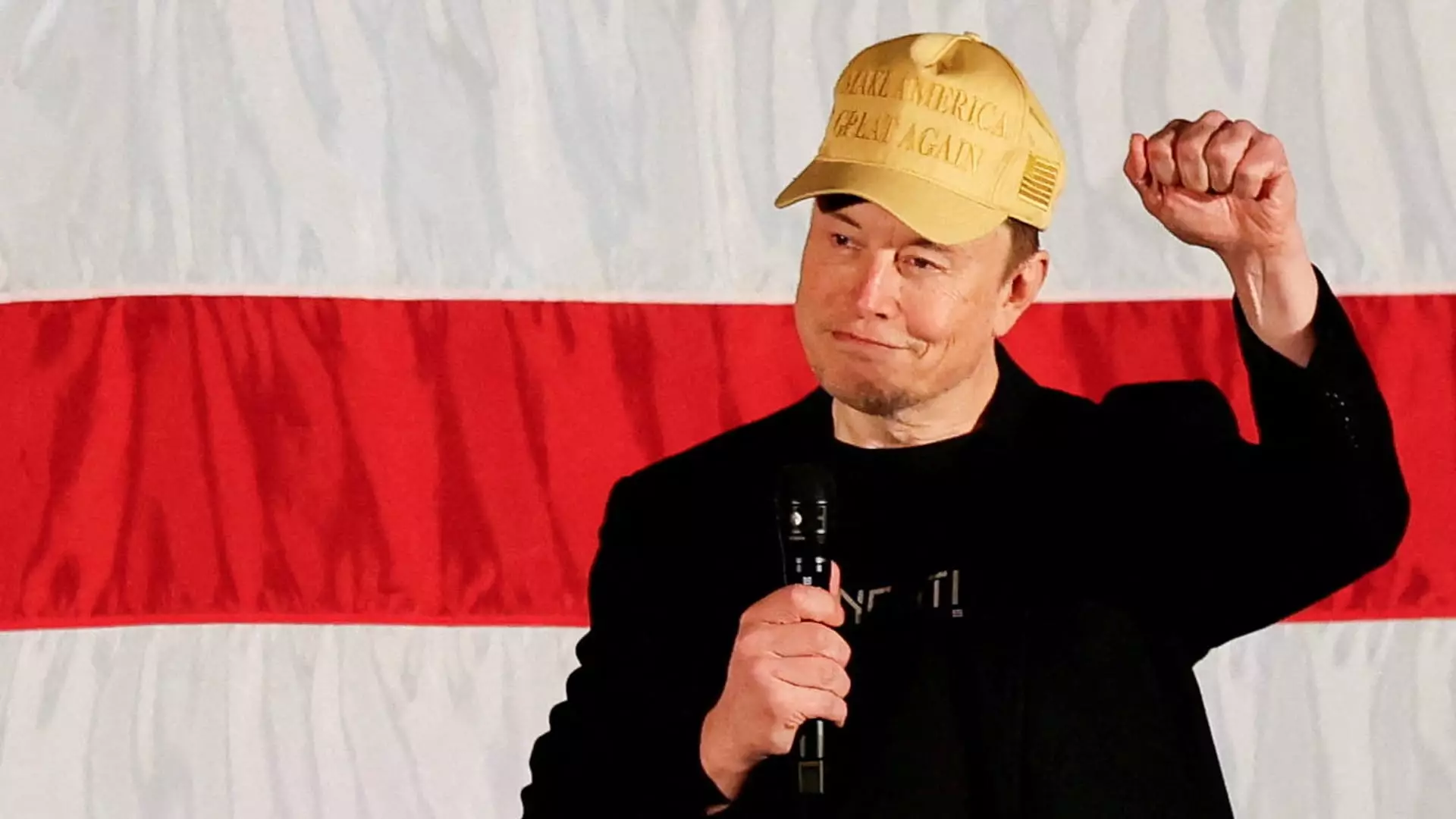In a move that has sparked both excitement and concern, Elon Musk recently unveiled an intriguing initiative aimed at boosting voter turnout for a pro-Trump political action committee. At a recent event in Harrisburg, Pennsylvania, Musk announced a plan to randomly award $1 million daily to registered voters who sign a petition supporting the committee. This high-stakes gamble, characterized by spectacle and sudden declarations, appears to be a calculated strategy to engage swing state voters in the electoral process. Critics, however, have raised eyebrows over potential legal ramifications and the ethical implications of linking financial incentives to voter participation.
Musk’s announcement came with a flourish, highlighting his penchant for showmanship. In a dramatic gesture, he pulled a large check from his pocket and presented it to a petition signer named John Dreher. “I think this is kind of fun, and you know, it seems like a good use of money basically,” Musk remarked, reflecting a cavalier approach that opposes the serious nature of democratic participation. The sheer wealth of Musk, estimated at around $250 billion, underscores a growing dynamic where monetary resources can overshadow traditional campaign strategies.
Despite Musk’s enthusiasm, numerous legal experts have warned that his initiative treads perilously close to election law violations. Rick Hasen, a law professor at UCLA, pointed out that the act of incentivizing voter registration with cash prizes may conflict with federal laws designed explicitly to prevent the commercialization of the electoral process. Such laws are rooted in the idea that votes should not be for sale, a fundamental tenet intended to maintain the integrity of America’s democratic processes.
The implications of Musk’s proposal are multifaceted. Engaging financial incentives could create a scenario where voters are motivated by cash rather than civic duty, potentially distorting the electoral landscape. Furthermore, risk exists that a segment of the electorate may perceive this as a legitimization of quid pro quo in politics, undermining the credibility of voter participation. The resolution of this issue might hinge on the legal frameworks in place and the interpretations of authorities tasked with overseeing electoral integrity.
Musk’s involvement in the political sphere adds to an ongoing debate about the role of wealth in democracy. As a billionaire who has openly critiqued government involvement in various sectors, Musk represents a growing trend of wealthy individuals attempting to influence public policy through direct engagement in politics. By utilizing his financial capital to advocate for political agendas, he stands at a crossroads between a passionate push for deregulation and the potential dangers of oligarchic influence on democracy.
Critics such as Pennsylvania Democratic Governor Josh Shapiro have characterized Musk’s strategy as “deeply concerning,” indicating the trepidation surrounding the potential for wealth to drive political outcomes. Calls for law enforcement scrutiny reflect a broader unease within the electorate regarding the adequacy of current regulations to mitigate the influence of affluent figures in democratic processes. This concern could catalyze discussions around revising election laws that delineate the boundaries of permissible political engagement for wealthy individuals.
In his speeches, Musk has also inhabited a space surrounding themes of distrust in governmental agencies and actions, further complicating his political narrative. Positioning himself against regulations—while simultaneously benefiting from substantial government contracts—reveals a contradiction emblematic of contemporary political discourse. Musk’s assertion that citizens should generally distrust the government, despite his own reliance on public funding, raises questions about his commitment to a balanced approach to governance.
Moreover, his comments regarding regulatory bodies, which he claims stifle innovation and progress, echo a populist sentiment that resonates with some voters but alienates others who prefer a more regulated approach to industry. The discourse surrounding accountability has been pushed to the forefront by Musk’s remarks about government inefficiencies, leading to an uncomfortable juxtaposition in which he advocates for minimal regulation while simultaneously calling for deregulation.
Ultimately, Musk’s initiative transcends individual actions at a single event; it signals a broader trend of wealth intersecting with politics and the potential consequences that follow. As political dynamics evolve, the interplay between financial incentives and democratic engagement will require diligent examination. While Musk’s audacious approach may energize certain voter blocs, its ramifications could echo throughout the political landscape for years to come, reshaping how elections are perceived and contested in America.
Musk’s venture into political engagement highlights the complex relationship between wealth, influence, and electoral integrity. As he attempts to leverage his financial resources to drive voter registration, the democratic system must confront the implications of such actions. Daring moves may invigorate civic participation, but they can also blur the lines of ethical voting practices, raising vital questions about the future of democracy in a capitalist society.

